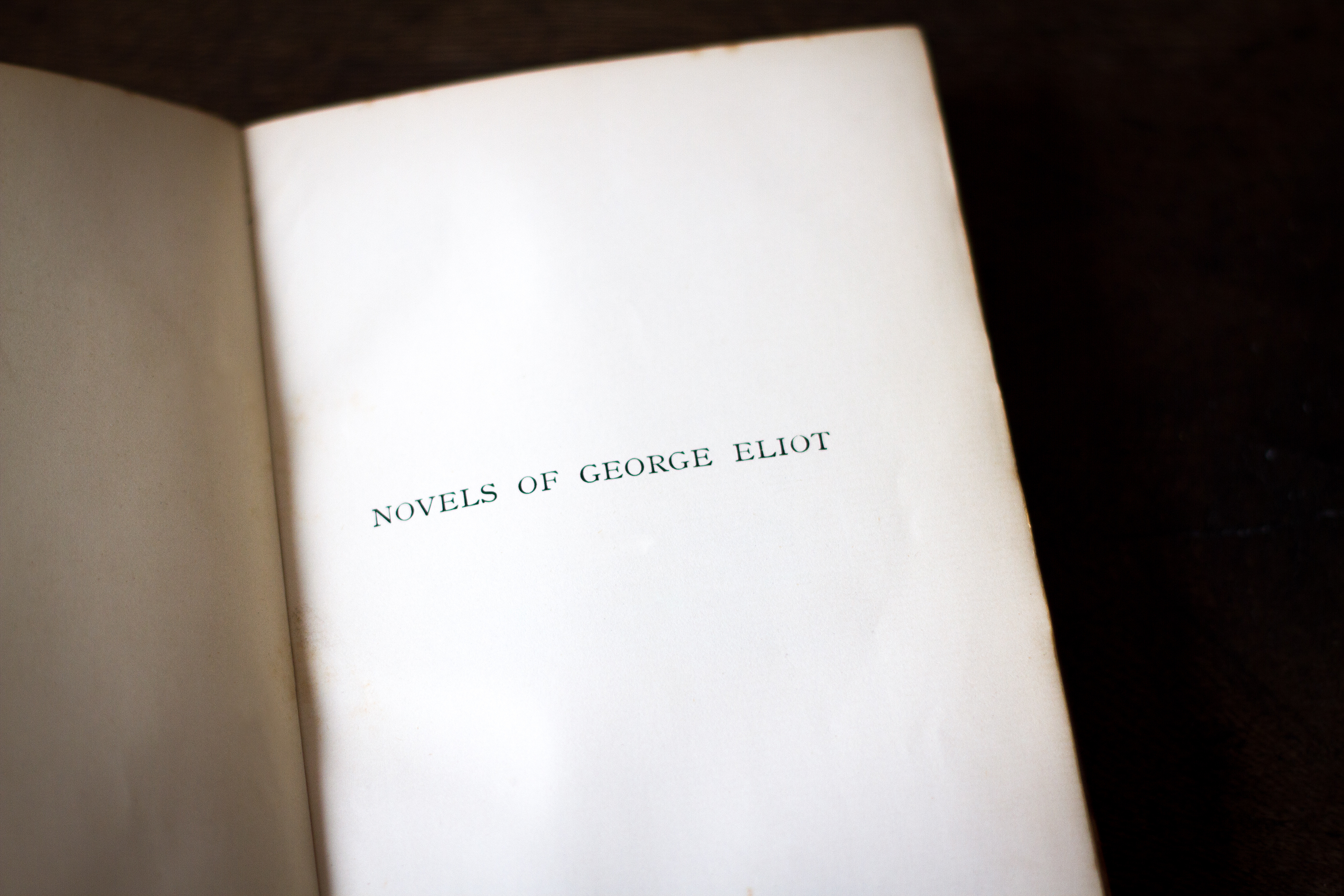Tuesday, 04 April 2023
Researchers at the University of Nottingham and De Montfort University Leicester have revealed exactly how a renowned screenwriter turned a classic novel into a hit BBC television drama.
The team has created a new interactive website that shows, in detail, how George Eliot’s classic novel, Middlemarch, was adapted, by one of Britain's most admired television dramatists, as a 6-part BBC serial in 1994. It brings together over 50 years' worth of documents (screenplays, notes, letters, research materials) by celebrated screenwriter Andrew Davies and it takes visitors on a journey, from the novel to the final tv production, through layers of scripts, correspondence, interviews, photographs and audio and video clips.

The rich resource, which traces the production history of the landmark series, shot on location in the Lincolnshire town of Stamford, is furnished with over 300 multi-media assets, almost 500 notes and 41 editorial commentaries. It was created by a research team led by Professor Justin Smith, Director of the Cinema and Television History Institute, working closely with the George Eliot Archive and the George Eliot Fellowship.
Professor Smith explains: "Transforming Middlemarch, 150 years after the novel’s first serialised publication, sheds new light on the process of bringing a 19th century literary classic to television audiences of the 1990s though the application of 21st century digital humanities technologies."
We hope this open access genetic edition will appeal not just to literary scholars and Eliot enthusiasts but will help inform fresh approaches to Adaptations and Television Studies alike.
Last year, a prototype was shown to screenwriters, educational publishers and digital archivists at a study day at the British Library, where feedback indicated “a lot of wide-ranging potential for the resource, beyond just academic study”, suggesting it would make a useful tool for people studying the art of screenwriting.
Dr Anna Blackwell, Assistant Professor in Drama at the University of Nottingham is an expert in adaptions and co-led the research. She explains: "Of all of George Eliot’s novels, Middlemarch is the least frequently adapted for screen and undoubtedly poses the greatest challenge for screenwriters like Davies. These challenges include Middlemarch’s large ensemble cast of characters, the novel’s significant length and Eliot’s distinctive, ironic narratorial voice which moves fluidly between perspectives. The genetic edition seeks to illuminate Davies’ adaptive practice as well as the efforts of the crew and cast to bring Eliot’s novel to life."
By reading and comparing the edition’s two digitised screenplays and accompanying notes, detailed commentaries, interviews, photographs, design sketches and more, users are given a unique insight into the creation of the acclaimed television series.
The 15-month project, drawing on Andrew Davies’ papers in DMU’s Special Collections and Eliot’s original manuscript pages from the British Library, has also involved the work of Research Fellow Dr Lucy Hobbs, Prof Gabriel Egan (Director of the Centre for Textual Studies), Dr Natalie Hayton (Archivist in DMU’s Special Collections department), and special advisor Dr Beverley Rilett (Director of the George Eliot Archive at the University of Auburn, Alabama).
Notes to editors:
About the University of Nottingham
Ranked 97 in the world and 17th in the UK by the QS World University Rankings, the University of Nottingham is a founding member of Russell Group of research-intensive universities. Studying at the University of Nottingham is a life-changing experience, and we pride ourselves on unlocking the potential of our students. We have a pioneering spirit, expressed in the vision of our founder Sir Jesse Boot, which has seen us lead the way in establishing campuses in China and Malaysia - part of a globally connected network of education, research and industrial engagement.
Nottingham was crowned Sports University of the Year by The Times and Sunday Times Good University Guide 2024 – the third time it has been given the honour since 2018 – and by the Daily Mail University Guide 2024.
The university is among the best universities in the UK for the strength of our research, positioned seventh for research power in the UK according to REF 2021. The birthplace of discoveries such as MRI and ibuprofen, our innovations transform lives and tackle global problems such as sustainable food supplies, ending modern slavery, developing greener transport, and reducing reliance on fossil fuels.
The university is a major employer and industry partner - locally and globally - and our graduates are the third most targeted by the UK's top employers, according to The Graduate Market in 2024 report by High Fliers Research. Alongside Nottingham Trent University, we lead the Universities for Nottingham initiative, a pioneering collaboration between the city’s two world-class institutions to improve levels of prosperity, opportunity, sustainability, health and wellbeing for residents in the city and region we are proud to call home. More news…